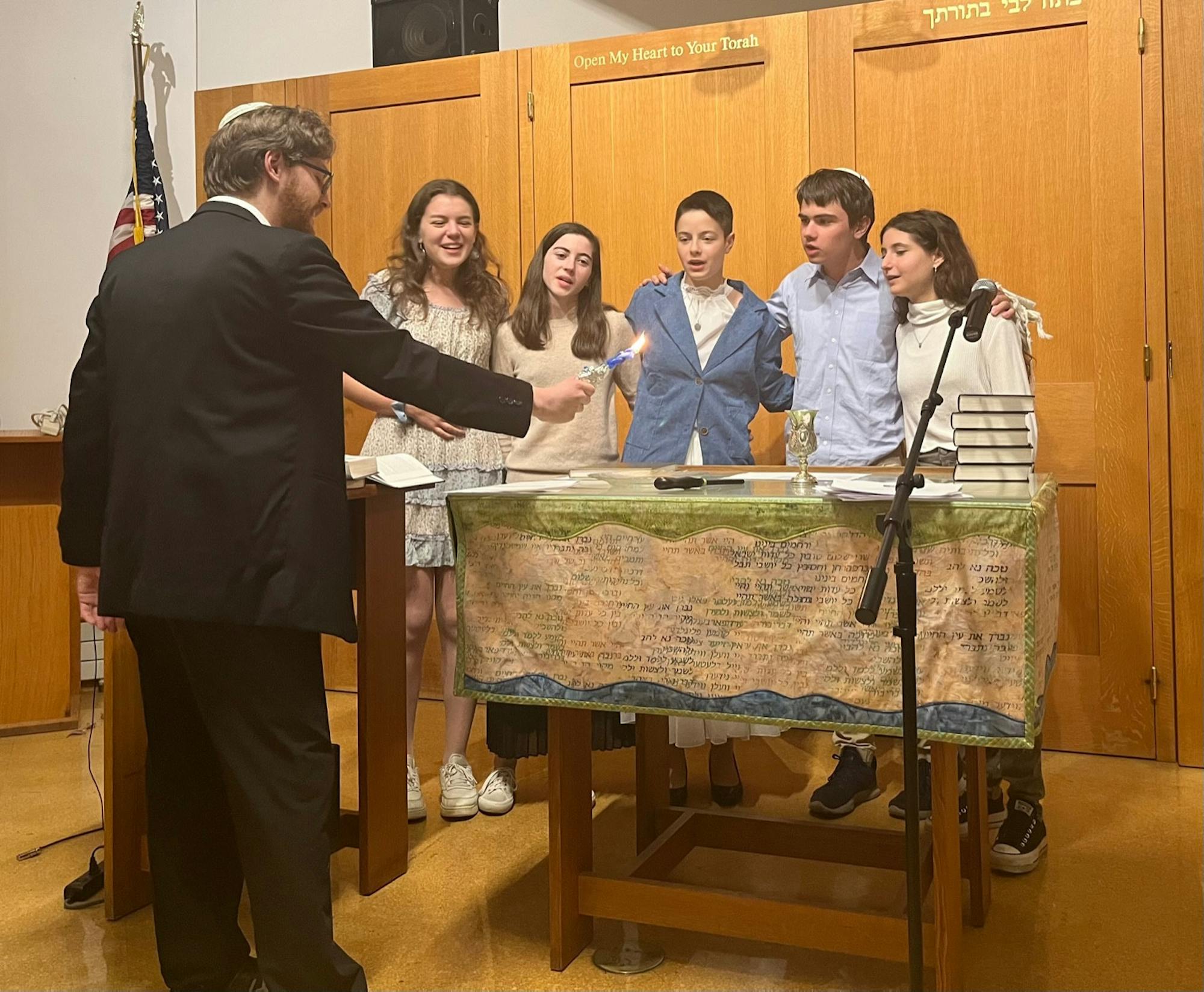On Sept. 24, a substantial number of Dartmouth community members attended services to celebrate the Jewish holiday Yom Kippur, a day of atonement marked by a 25-hour fast of no food or drink. According to Hillel executive director rabbi Seth Linfield, more than 200 people attended events surrounding Yom Kippur, which included a pre-fast meal and services the following day.
According to Chabad director rabbi Moshe Gray, Yom Kippur is a solemn period of self-reflection that commemorates the day when God granted Moses forgiveness on behalf of the Israelites. The holiday serves as a time when the Jewish people seek forgiveness for their missteps in the previous year and seek to mend relationships with themselves, each other and with God, Linfield said.
“We reflect on where we may have may have missed the mark over the course of the past year and what are the practical steps that we can take to live as ethical human beings created in the divine image,” Linfield said.
In addition to Chabad events, Dartmouth Hillel held services on Sunday night and Monday study sessions until the break-fast, a celebratory feast concluding the fast. Hillel coordinated these events in conjunction with the Upper Valley Jewish Community to facilitate connections beyond Dartmouth, Linfield said.
Dartmouth Dining culinary manager C. Robert Lester said that the top floor of the Class of 1953 Commons was also reserved for students to eat their pre-fast meal, a decision that centers on “integrity.” Gray noted that the fast culminates with a feeling that “you’re different, you’re lighter and a weight has been lifted,” after these acts of denial to the self.
“If you came to me with a rule that your family follows that I have never heard before, I’m going to say, ‘teach me,’” Lester said. “Tell me what you need.”
The increase in attendance at these events stems from post-pandemic changes and a Jewish community intent on finding a renewed sense of belonging, Linfield said. He added that Hillel three years ago would typically host 40 students for each Shabbat dinner, but hosts roughly 120 students today.
“The seniors on campus had COVID materially affect their college experience … and I think that this generation of students post-COVID is refocusing on living lives of meaning and purpose, and how to express their own ideals through community,” Linfield said.
Cara Marantz ’25, who serves on Hillel’s executive student board, said she appreciates the diversity of events, such that all members of Dartmouth’s Jewish community can partake in the holiday.
“That’s the intention of having all those different types of [events] for people,” Marantz said. “Everybody has something different that they want to connect to in their Jewish identity, or the Jewish community, but I like that.”
Linfield said that the diverse set of events, coupled with strong attendance, highlights the strong Jewish community on campus.
“It’s beyond inspiring because it shows that Dartmouth students have a sense of self and a sense of place that makes our relationships as a community different and stronger than just about anyplace else,” Linfield said.
With the conclusion of Yom Kippur, Linfield said that Hillel is now looking to the future of Jewish representation and celebration at Dartmouth — student life being the focus.
“We want to be a platform for Jewish students to explore their identity in a positive and safe, engaging way,” Linfield said. “We like to say our goal [is] to help you make a living, make a life, and make a difference.”
Gray echoed this sentiment, saying that he hopes students find importance and meaning in their lives.
“Since a lot of Jewish kids who get here might have put their own Judaism on hold, [they] can now choose what’s important to them,” Gray said. “My goal as a rabbi is to help you grapple with that. Judaism is fulfilling. It’s meaningful. It’s deep. It’s purposeful.”




